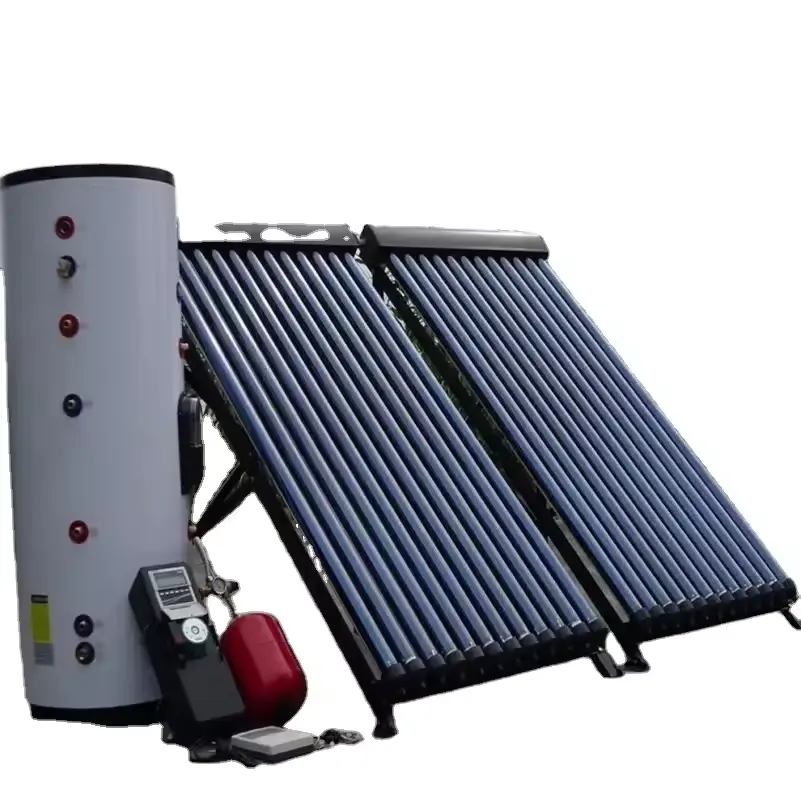- This topic is empty.
-
AuthorPosts
-
2025-07-24 at 10:59 am #10191
In an era where sustainability and renewable energy are increasingly becoming priorities, photovoltaic (PV) water tanks have emerged as a clever integration of solar energy harnessing and domestic water heating. These systems not only reduce reliance on conventional energy sources but also contribute significantly to environmental conservation. The Tianjin Yuantai Runde photovoltaic water tank is ideal for both residential and commercial applications, offering a sustainable way to meet hot water needs while contributing to a cleaner environment. Its compact design and ease of installation make it a practical choice for those seeking to adopt green energy solutions.

The Working Principle of Photovoltaic Water Tanks
1. Solar Panel Integration
At the heart of a photovoltaic water tank lies the solar panel, which captures sunlight and converts it into direct current (DC) electrical energy. These panels are typically made up of photovoltaic cells, silicon-based semiconductors that exhibit the photovoltaic effect – generating voltage when exposed to light. The efficiency of these panels varies, with advancements continuously pushing boundaries towards higher conversion rates.
2. Energy Conversion and Storage
The DC electricity produced by the solar panels is then directed to an inverter, which converts it into alternating current (AC) suitable for household use. However, in the case of PV water tanks, this electricity is primarily used to power an electric heating element within the tank. This heating element converts the electrical energy into thermal energy, gradually warming the water inside.
Additionally, some advanced PV water tank systems incorporate thermal storage solutions, such as heat exchangers or phase change materials, which enhance energy retention and allow for hot water supply even during periods of low sunlight.
3. Smart Controls and Optimization
Modern PV water tanks are equipped with intelligent control systems that monitor water temperature, solar radiation levels, and energy consumption. These controls optimize the heating process, ensuring maximum efficiency and minimizing energy waste. For instance, they might adjust the heating intensity based on the ambient temperature or the time of day, or even integrate with home automation systems for seamless user interaction.
Applications of Photovoltaic Water Tanks
1. Residential Use
For households seeking to reduce energy bills and their carbon footprint, PV water tanks offer an ideal solution. They can supply all hot water needs, from daily showers to laundry and dishwashing, without relying on natural gas or electricity from the grid. Installation is often straightforward, with many systems designed to fit seamlessly onto rooftops or integrate with existing plumbing systems.
2. Commercial and Industrial Applications
Businesses, particularly those in the hospitality, healthcare, and leisure sectors, can significantly benefit from PV water tanks. Hotels, for example, can reduce operational costs by utilizing solar-heated water for guest rooms, swimming pools, and kitchens. Industrial processes that require large volumes of hot water, such as food processing or textile manufacturing, can also adopt these systems to cut down energy expenses and enhance sustainability.
3. Rural and Off-Grid Communities
In remote or underserved areas where access to conventional energy sources is limited, PV water tanks provide a reliable and self-sufficient means of hot water supply. They enable communities to harness their abundant solar resource, improving living standards and public health without the need for extensive infrastructure development.
4. Public and Government Buildings
Municipalities and government agencies are increasingly adopting PV water tanks as part of their green initiatives. Schools, hospitals, and administrative buildings can lead by example, demonstrating the practical application of renewable energy technologies while promoting environmental awareness among the public.
Conclusion
Photovoltaic water tanks represent a forward-thinking approach to harnessing solar energy for domestic and commercial water heating needs. By integrating solar panels, efficient energy conversion mechanisms, and smart control systems, these tanks offer a sustainable, cost-effective, and eco-friendly alternative to traditional heating methods. As technology advances and adoption rates climb, Tianjin Yuantai Runde PV water tanks are poised to play a pivotal role in transitioning towards a more sustainable energy future. By understanding their working principles and exploring their diverse applications, we can better leverage this innovative technology to meet our hot water demands responsibly.
https://www.yuantairunde.com/the-working-principle-and-application-of-photovoltaic-water-tanks.html
http://www.yuantairunde.com
Baichuan Energy Co., Ltd. -
AuthorPosts
- You must be logged in to reply to this topic.